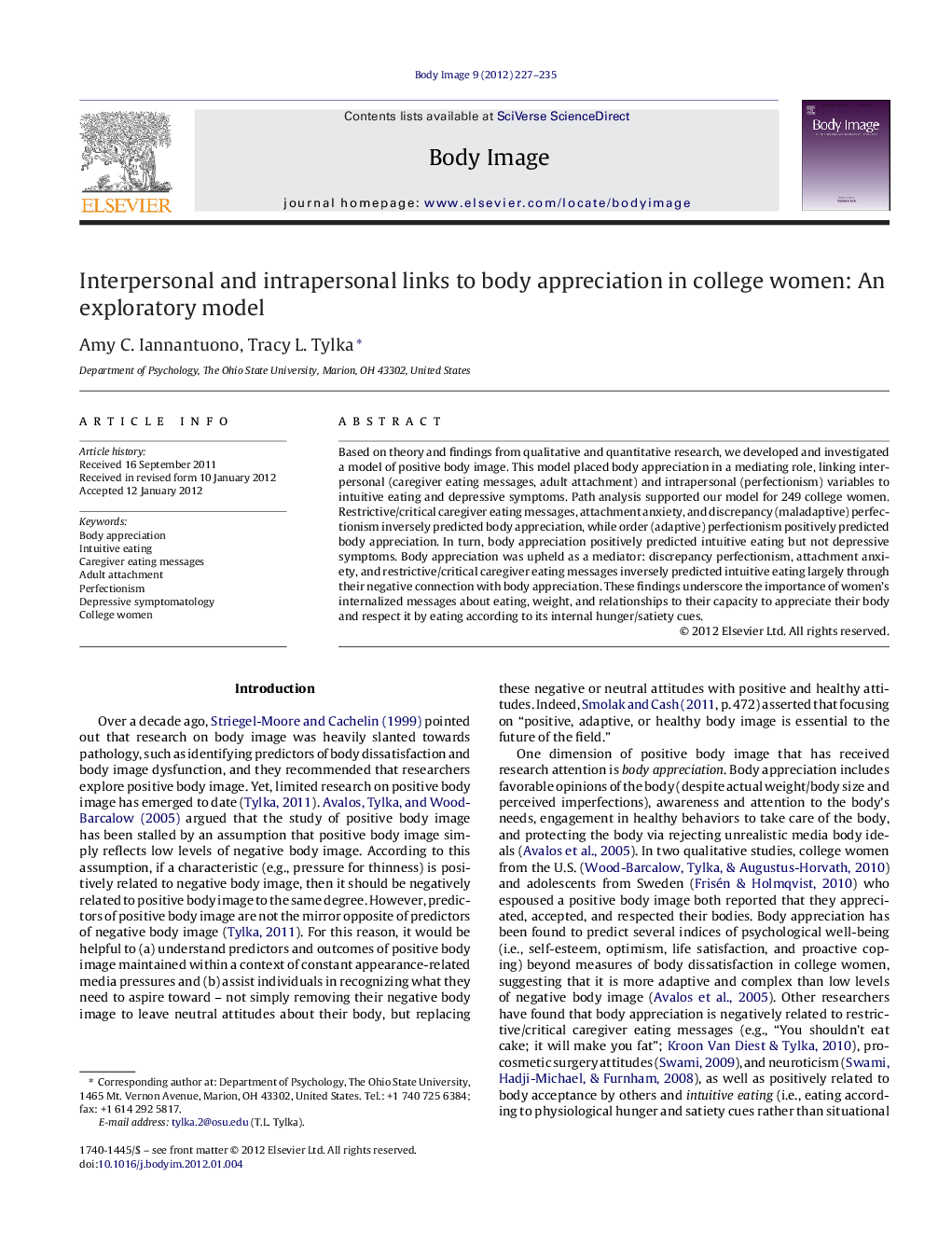| Article ID | Journal | Published Year | Pages | File Type |
|---|---|---|---|---|
| 903126 | Body Image | 2012 | 9 Pages |
Based on theory and findings from qualitative and quantitative research, we developed and investigated a model of positive body image. This model placed body appreciation in a mediating role, linking interpersonal (caregiver eating messages, adult attachment) and intrapersonal (perfectionism) variables to intuitive eating and depressive symptoms. Path analysis supported our model for 249 college women. Restrictive/critical caregiver eating messages, attachment anxiety, and discrepancy (maladaptive) perfectionism inversely predicted body appreciation, while order (adaptive) perfectionism positively predicted body appreciation. In turn, body appreciation positively predicted intuitive eating but not depressive symptoms. Body appreciation was upheld as a mediator: discrepancy perfectionism, attachment anxiety, and restrictive/critical caregiver eating messages inversely predicted intuitive eating largely through their negative connection with body appreciation. These findings underscore the importance of women's internalized messages about eating, weight, and relationships to their capacity to appreciate their body and respect it by eating according to its internal hunger/satiety cues.
► A model exploring interpersonal and intrapersonal links to body appreciation was upheld among college women. ► Restrictive caregiver eating messages, attachment anxiety, and maladaptive perfectionism inversely predicted body appreciation. ► Body appreciation was a central mediator, linking the abovementioned variables to intuitive eating. ► Body appreciation did not uniquely contribute to depressive symptomatology.
